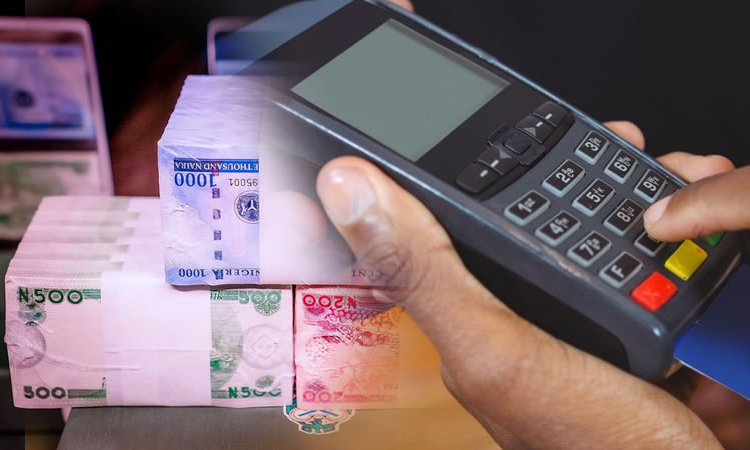Days after the ultimatum that the Central Bank of Nigeria (CBN) gave banks to ensure the availability of cash within the banking halls and the Automated Teller Machines (ATMs) around the country, customers are still unable to get cash from ATMs.
This is as banking agents, popularly known as Point of Sale (PoS) operators have resorted to mopping up cash from major markets and fuel stations.
LEADERSHIP Sunday findings showed that only a few ATMs are dispensing cash with a limit of N10,000 for cardholders that are not their customers.
CBN governor, Olayemi Cardoso, had on November 29, 2024 mentioned the challenge of unavailability of cash at ATMs, a problem Nigerians have been battling with since February 2023 and had resulted in bank customers resorting to PoS operators who charge excessively for cash.
To address this, Cardoso said the apex bank would be conducting spot checks across Deposit Money Banks (DMBs) and would impose penalties on underperforming institutions. He also encouraged bank customers to report directly to the CBN through designated phone numbers and email addresses for their respective states if they have any difficulties withdrawing cash from bank branches or ATMs.
However, many banks have yet to comply with the directive by ensuring that cash is readily available at all their ATMs at all times.
Some of the bank branches visited by our correspondents had only one of their ATMs dispensing cash with customers permitted to withdraw a limited amount of cash.
Some of the customers who spoke with LEADERSHIP Sunday expressed their displeasure with the activities of the banks as they were not able to access enough funds.
A customer of one of the banks who craved anonymity, expressed her disappointment as she was unable to have access to cash.
She said, “I went to ATM locations to withdraw money but it was not dispensing cash. I had to go back home and I was really unhappy. I do not know why ATMs are not dispensing cash even after the CBN said cash has been made available.”
At a new generation bank in Lagos, only customers with the bank’s debit cards could withdraw a maximum amount of N20,000 and those with other banks’ debit cards were allowed to withdraw a maximum of N10,000.
A security personnel at another bank confirmed that cash was not dispensed at any of its ATMs except if the customers entered the banking hall to make the withdrawals.
At one of the older banks, a customer said “the ATM dispenses a maximum of N20,000.”
Meanwhile, PoS operators have moved on to sourcing their cash from markets and filling stations.
Some PoS operators said they were able to get cash from retailers and wholesalers in major markets, fuel stations and abattoirs where people engage in mainly cash transactions.
“We are also finding it difficult to get cash and have to make a booking ahead to get cash from the market women,” a PoS operator who craved anonymity said.
According to him, the market women prefer cash transactions to avoid cases of fake alerts, failed or reversed funds transfer.
“So, we get our cash from the traders, cow sellers and from fuel stations. But because we (PoS operators) are many, we have to book ahead for the cash. I pay into the traders’ account today and luckily, I may get cash tomorrow. The same thing for the fuel stations,” he said.
The operator however noted that many of his colleagues with this arrangement do not pay for the cash. On why their charges have remained high, the operator attributed it to operational cost and the stress associated with moving from one place to another to get the cash.
Another operator said she used to get cash from the banking hall to meet her customers’ demands, but alleged that the banks were not giving above N50,000.
“Some even limit cash withdrawal over the counter to N10,000. So, I don’t rely on the banks anymore for cash. I operate with what people come to deposit and the cash that I source from traders,” she explained.
The CBN governor had called for full regulatory compliance by all stakeholders, including Mobile Money operators and PoS agents, stating that financial institutions found engaging in malpractices or deliberate sabotage would face stringent penalties.
Cardoso had also assured that the “CBN will continue to maintain a robust cash buffer to meet the country’s needs, particularly during high-demand periods such as the festive season and year-end. Our focus is on ensuring a seamless cash flow for Nigerians while fostering trust and stability in the financial system.”
